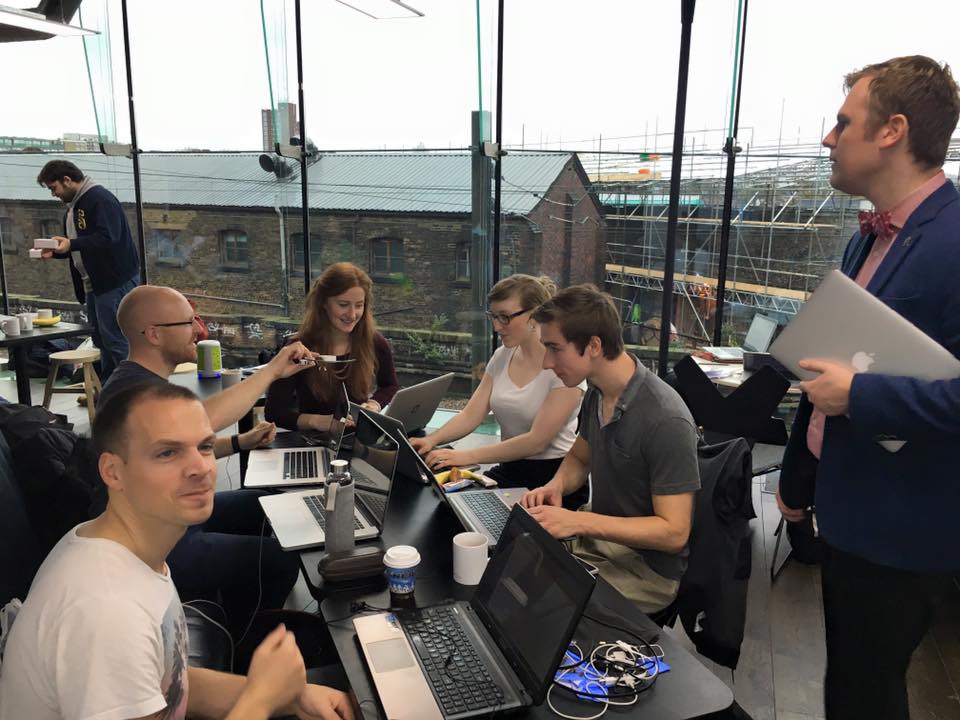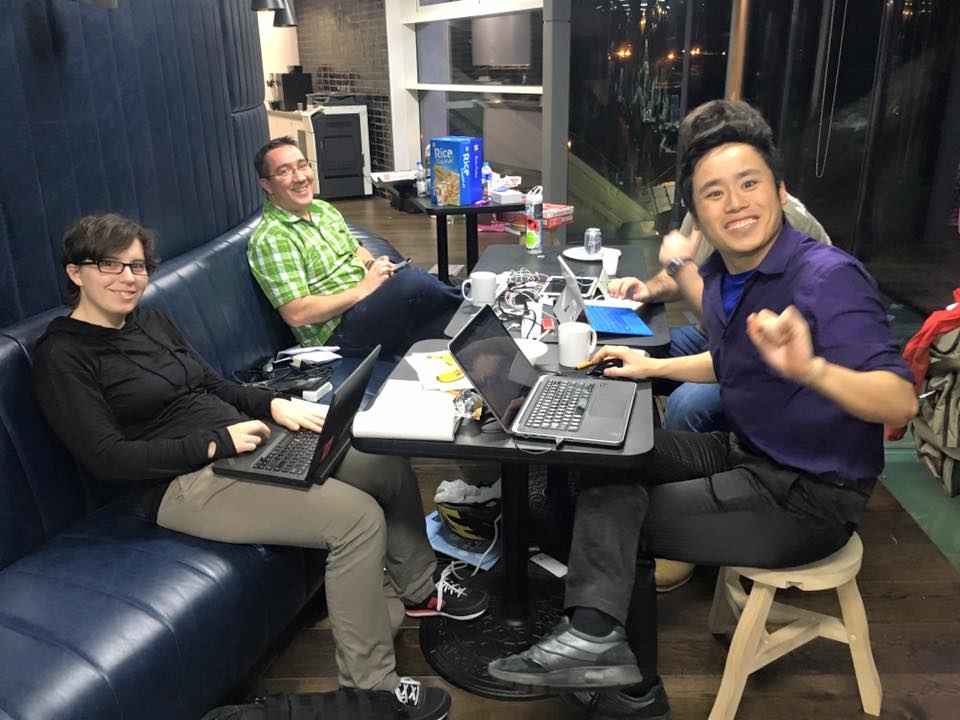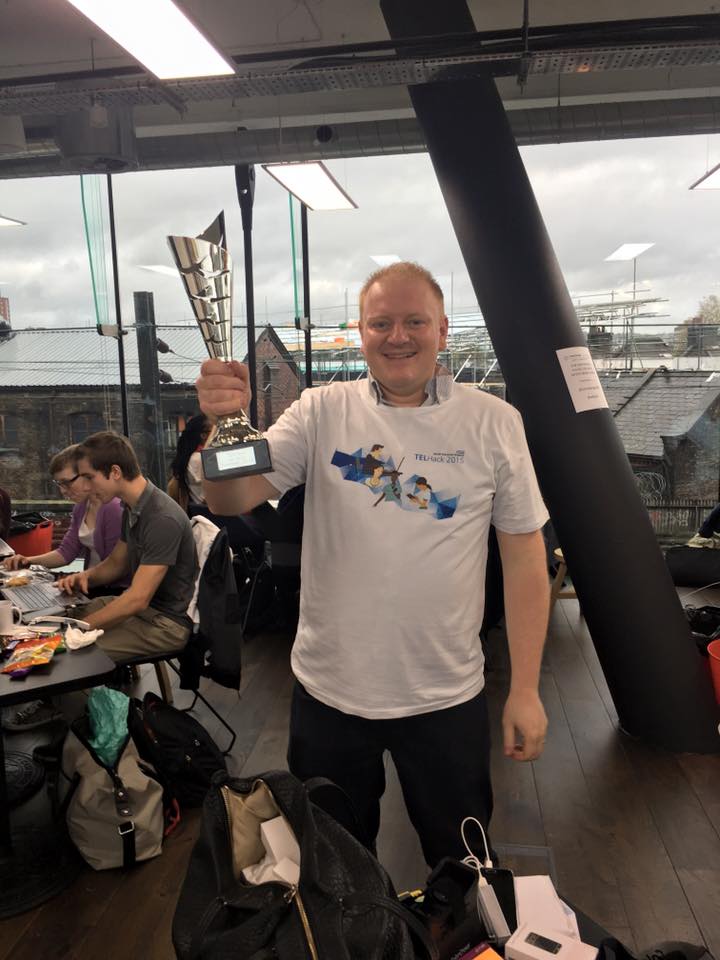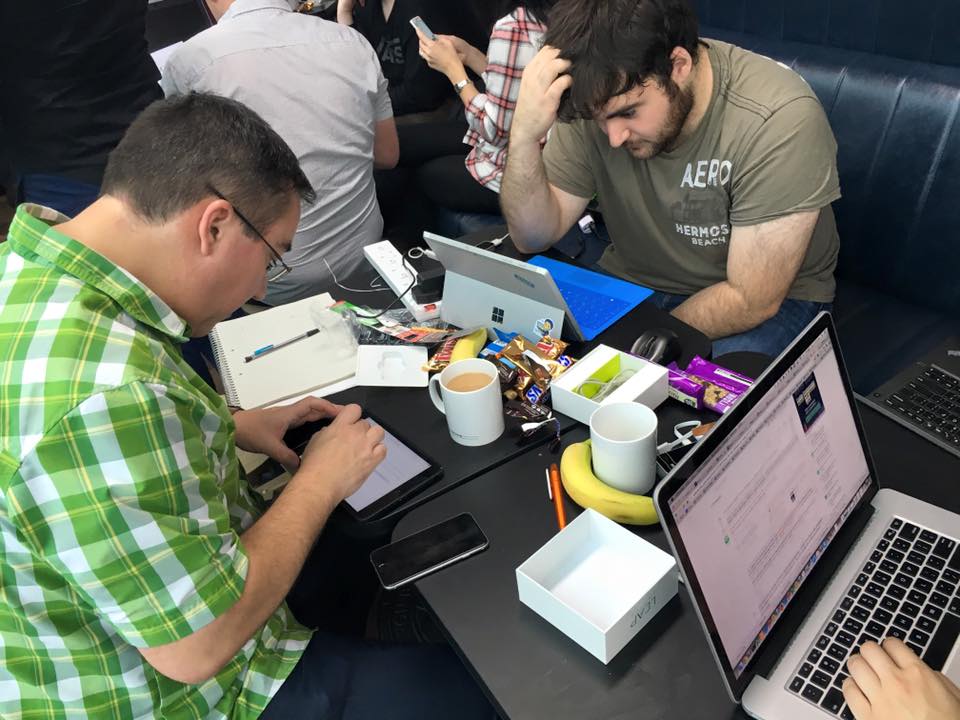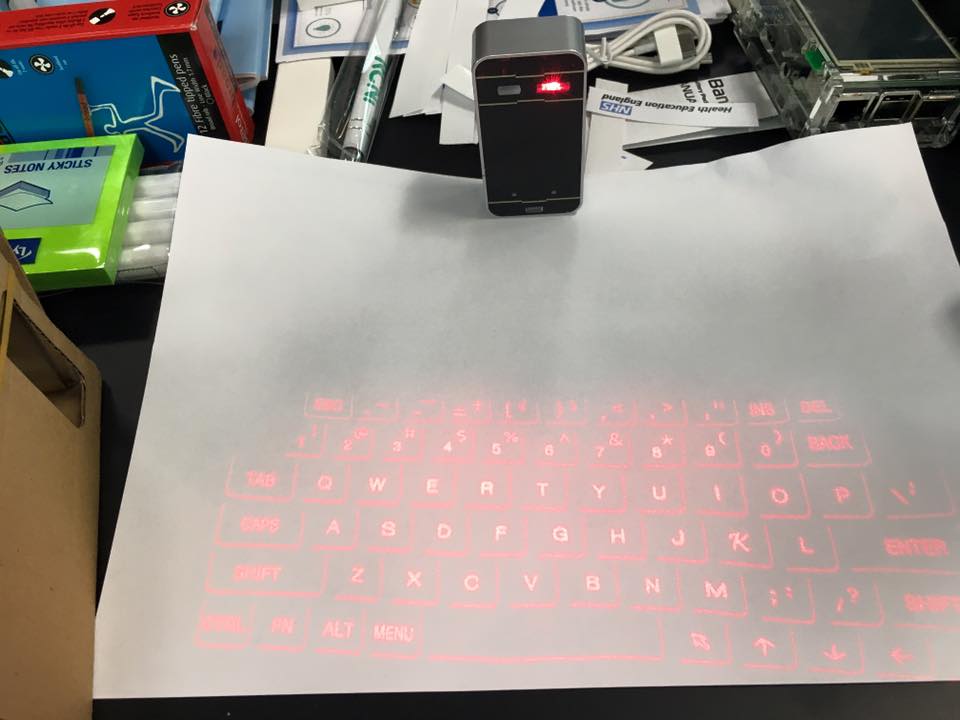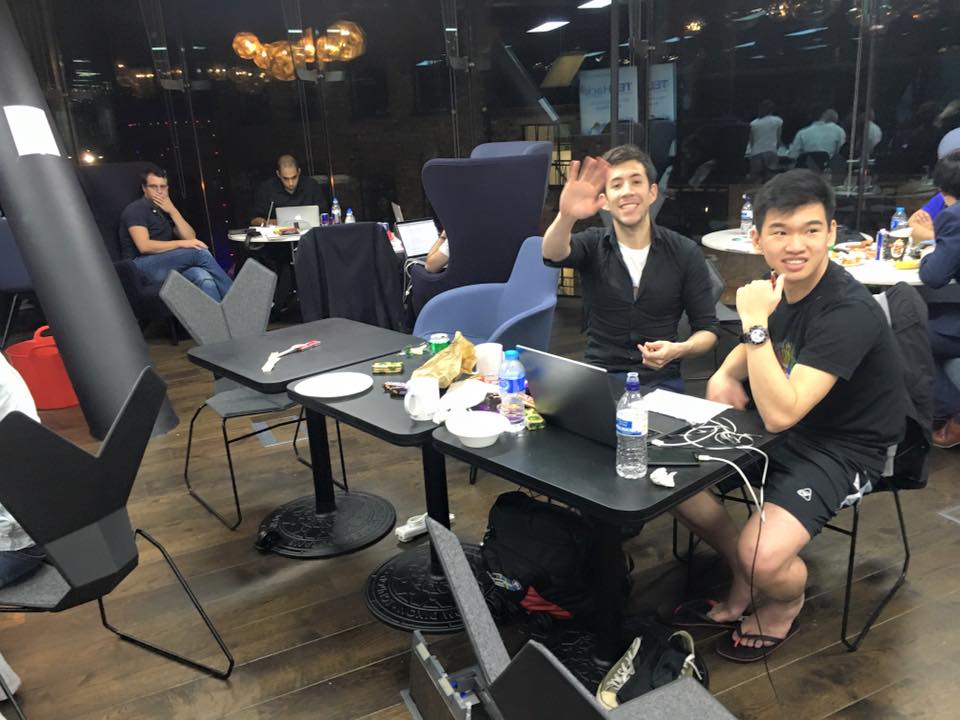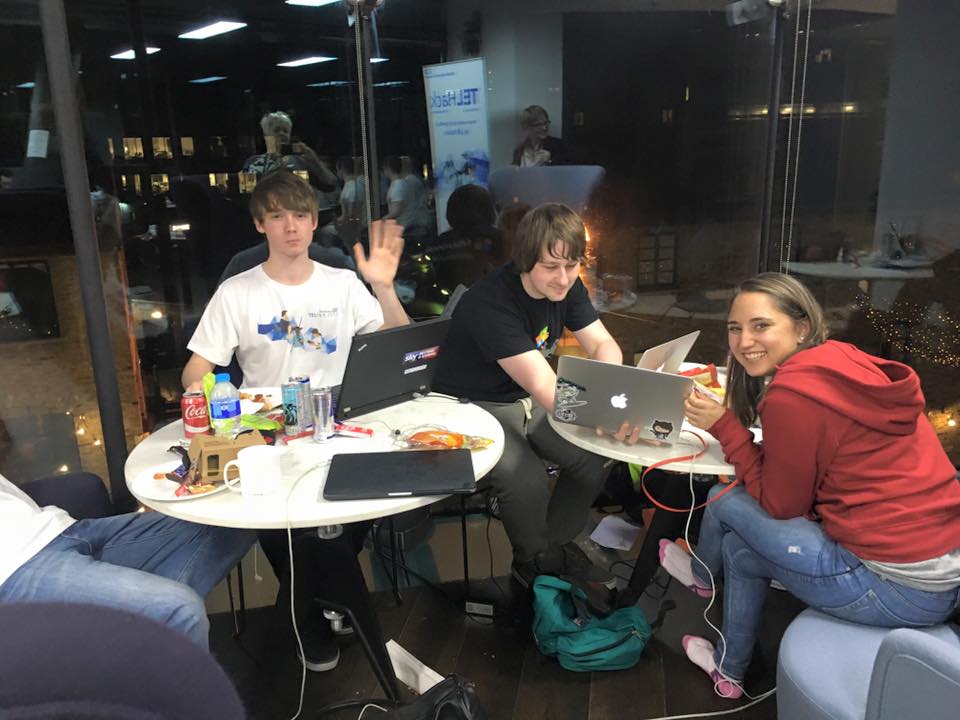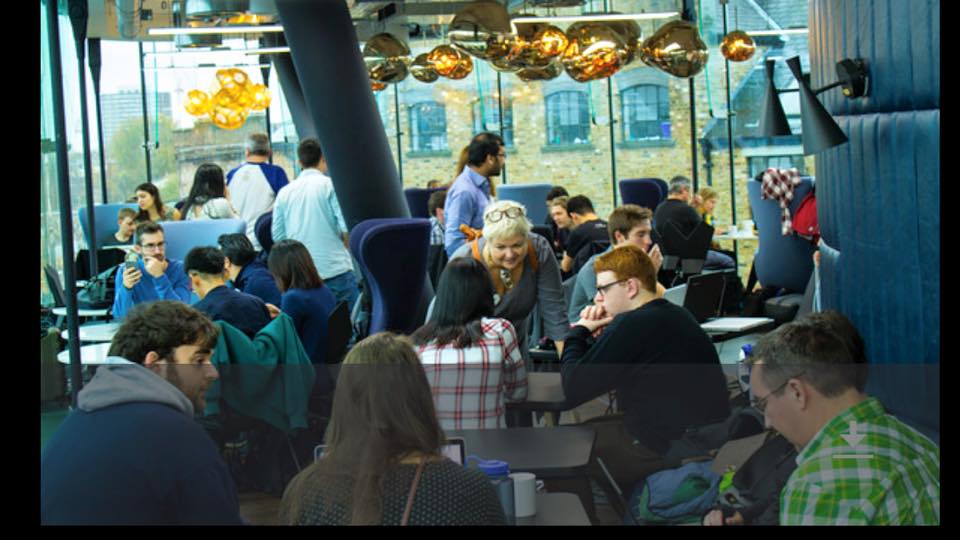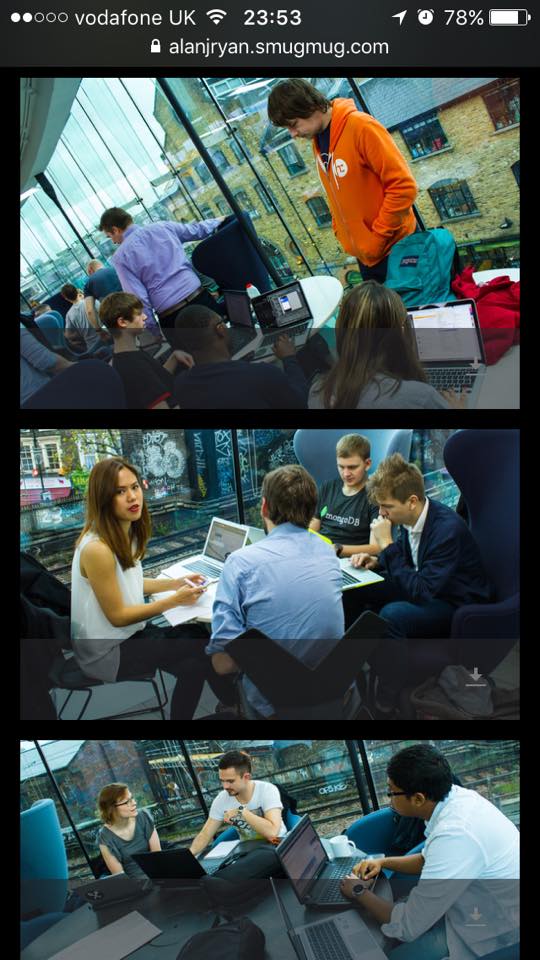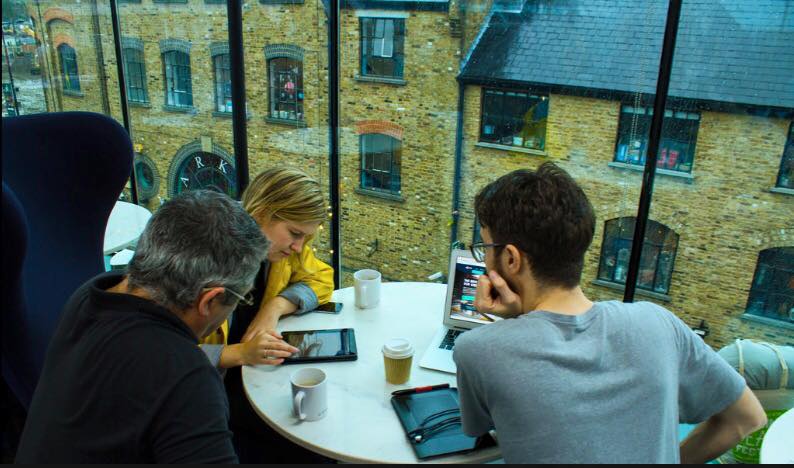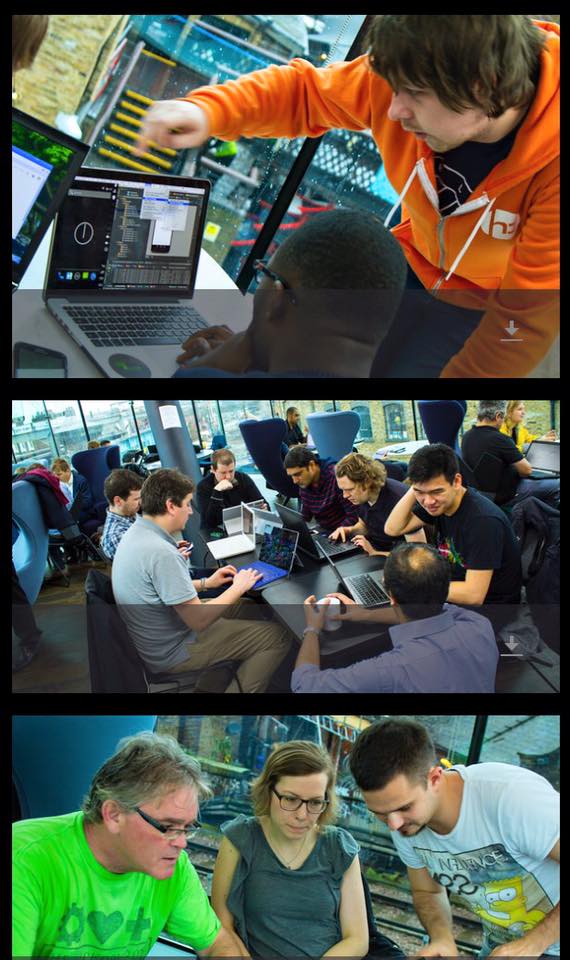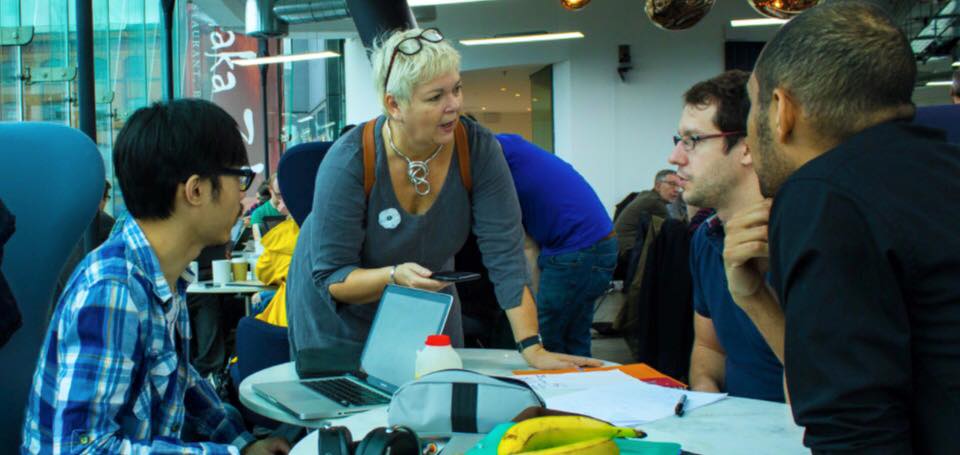We weren’t sure what to expect, to be honest. We knew Hack Partners were experienced in pulling off these kind of events and some of us had a bit of experience at a Hack Partners’ hackathon but this was an exploratory exercise for us. We knew that we wanted to innovate ourselves, we knew that we wanted to create a space, a time where we could bring together as diverse a range of people as possible in order to let them work together on the challenges that we face in healthcare education and training and, hopefully, come up with some techie solutions.
I think we, the TEL team, were all a bit blown away by what actually happened. From the get go, we had some really sound pitches, most, if not all, that could easily have got a team around them and been worked on. However, only the top ten ideas went forward to form teams and it was very interesting to see how quickly people abandoned their own idea and totally jumped on board with someone else’s. There were still internal discussions and clear differences of opinion but there was no sign at all of any dysfunctional teams that simply couldn’t get their act together. As an exercise in team-building and leadership skills alone, this was a worthwhile and productive learning experience.
The weekend was intense, in every sense, and I finally understood what I’d been told in advance, that a hackathon can be emotional! People were committing time and energy and real passion to their projects and this really showed when it came to the presentations at the end. With only four minutes to present and then two minutes for Q and A, the professionalism, combined with the enthusiasm and confidence on display, was incredible.
Four winning teams emerged on the Sunday.
Team Score my Sutures had an image recognition tool to help training surgeons practise their suturing with immediate assessment and feedback.
Team Echo developed a project using iBeacon technology to help trainees, students, locums in clinical setting orientation and information.
Team Geyedlines had an application that delivers immediate point-of-care information via Google Glass. (Geyedlines also won the Big Data and Innovation awards)
Team iNurse had created a test/quiz-based interactive learning site for training nurses using gamification to increase interest and motivation.
But TELHack wasn’t over. We had a showcase event held at The National Science Museum on the evening of 10 November. With the Information Age Gallery given over to us for the evening, courtesy of Bloomberg, we were utterly spoiled with this venue. Surrounded by the technology solutions of C20th, we couldn’t have asked for a better setting to look again at the projects that teams had come up with. One participant told me that they were too exhausted on Sunday to worry too much about presenting but that this time it was really nerve-wracking. They all did a superb job. This time our judges were focusing anew on the criteria but giving extra weight to the viability and sustainability of projects within an NHS setting.
Team iNurse triumphed again and were jointly awarded the top slot with Team Ward Words who had developed an interactive, audio-visual app for nurses with English as a second language needing to build confidence and language in clinical settings.
The TEL Programme will be continuing to work with the hack concept and to look for ways in which we can mentor and support innovation in healthcare education to try and ensure that ideas come to full development and implementation. It was more than evident through this experience that there are the brains, the talents, the enthusiasm and appetite for innovating in healthcare education. As Hack Partners are so fond of saying – let’s do this!
